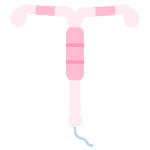What is Family Planning?
Family planning begins with an open discussion among a couple about their desires, expectations, and fears about having a family. It allows you and your partner to choose how many children to have and when to have them, paving the way to a healthier future.
Family planning helps you and your partner determine the time, spacing, and frequency of pregnancy with a range of methods for preventing conception while maintaining a normal and healthy sex life.
Why Family Planning?
You and your partner have the right to choose how many children to have and when to have them. As a couple, it’s important to talk to each other about family planning. When you use contraceptives to have fewer children, it means a healthier you, healthier children, and more time ⏱️ and money 💵 for each one of your children to live a better and happy life.
All over the world, including in Islamic countries, many young people are using contraceptives to delay pregnancy.
Ideally, a couple should have children when they are financially, emotionally, and physically ready, and that often means after 18 years of age once they both complete their initial studies.
Forcing yourself to have children before that means your body will not be ready and both you and your baby may face greater health risks.
After having a child, it is healthier for both you and your child to wait at least 2 years before conceiving again. Also remember, having more than 4 children makes childbirth riskier for both mother and child.
Can Family Planning methods affect menstruation?
Birth control methods such as the pill, ECP, injections, implants, and IUD can all have an impact on a woman’s menstrual bleeding. Menstruation can be longer, shorter, heavier, or lighter, depending on the Family Planning method being used. These effects can change over time.
However, it’s important to note that there is no impact on your fertility. You can stop using Family Planning methods at any time you plan on having more children.

How many types of contraceptive methods are there?
There are natural methods such as standard days and withdrawal, as well as quick on-demand methods such as condoms and Emergency Contraception Pills (ECP). Moreover, there are frequently used methods like pills and injections and infrequent longer-term methods like IUD and implants. Finally, permanent methods include sterilization and vasectomy.
These methods have different ways of working and different levels of effectiveness in preventing unintended pregnancy. Using more than one method at the same time significantly increases the chance of avoiding pregnancy.

Male Condom
A condom is a thin film sheath that is placed over a man’s erect penis before having sex.
Use Every Time

The Pill
The pill is a small tablet containing hormones that needs to be swallowed at the same time every day.
Used on a Schedule

Injection
The contraceptive injection is a shot of hormones that lasts for 1 up to 3 months.
Used on a Schedule

Implant
1 or 2 small hormone releasing silicone rods put under the skin by a healthcare provider.
Low Maintenance

Intrauterine Device (IUD)
An IUD is a small, flexible, often T-shaped device wrapped in copper that is placed inside your womb by your healthcare provider.
Low Maintenance

Sterilization
Sterilization is the process of completely taking away the body’s ability to reproduce through surgery or minimal invasion.
Permanent

Natural Method
Did you know that you can prevent conception even without the help of any items? Read on to learn more!
Lifestyle

Emergency Contraceptive Pill
Emergency contraceptives (ECP) are hormone-based pills that are used in the event of accidental unprotected sex.









